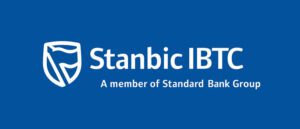
NESG criticises suspension of legislative action on Tax Reform Bills
The Nigerian Economic Summit Group (NESG) has expressed its disapproval over the Senate’s decision to suspend legislative action on the controversial tax reform bills.
The Chief Executive Officer of NESG, Dr Tayo Aduloju, made the think tank’s position known during a media session on Friday.
On Wednesday, the Senate suspended work on the tax reform bills and directed its Committee on Finance to postpone the public hearing until concerns raised in the public domain were addressed. The Senate also established a special committee to engage with the executive arm of government to resolve the issues surrounding the tax reform bills.
Since President Bola Tinubu submitted the bills to the National Assembly in October, they have generated significant controversy across the country. The proposed bills include the Joint Revenue Board of Nigeria (Establishment) Bill, 2024; the Nigeria Revenue Service (Establishment) Bill, 2024; and the Nigeria Tax Bill, 2024.
However, Dr Aduloju opposed the Senate’s decision, asserting that the legislative process should continue despite the concerns raised.
He stated, “I believe the lawmakers should reopen the hearing and gather as comprehensively as possible all memoranda from across Nigeria. The technical committee should then begin the review of these memoranda.”
He acknowledged that for some regions, the issue was primarily technical, while others were concerned about losing provisions that had previously worked for them. This, he argued, made the matter a geopolitical one. “Let the geopolitical memos come forward; we are in a federation, and it matters,” he added.
Dr Aduloju also raised concerns regarding the capacity of institutions to implement the proposed changes, as well as the need for an impact assessment. According to him, the bills are designed to expand Nigeria’s tax base, improve the tax information system, and foster tax justice.
He agreed that tax issues are politically sensitive, noting, “Many of our states still rely on unauthorised tax collectors. This bill prohibits that and mandates that only revenue officers can collect taxes. This is a significant shift and presents a challenge for political leaders, who must reconsider how they operate.”
However, Dr Aduloju asserted that despite the challenges, the country must make a choice. “Are these laws perfect? No, they cannot be perfect, but they should work for all at the federal level.”
He also emphasised that, during the drafting of the bills, a wide range of stakeholders had been consulted, and their feedback was incorporated. He further noted that although the matter is sensitive and more feedback could be expected, the process had been inclusive.
“We engaged experts from all geopolitical zones, we held workshops, and we debated the issues with diverse groups, from market leaders to smallholder farmers. We have not taken an elitist approach,” he said.
He therefore called on lawmakers to allow the legislative process to continue. “If, after the committee’s work is concluded, some aspects of the bills prove incompatible with federal interests, it is fair for them to voice those concerns and proceed with the rest of the reforms.”
Dr Aduloju maintained that those supporting the bills believe they are a step forward, being better than previous proposals. “They require a federal spirit to apply them. There will always be arguments about what the regions stand to gain, but these bills are not meant to answer all questions about federalism,” he concluded.
The NESG CEO further argued that the National Assembly should delve deeper into the concept of federalism and resolve any arising issues. “The questions being raised are about federalism, and in this case, tax issues have brought those concerns to the forefront. We fully support these bills,” he affirmed.




